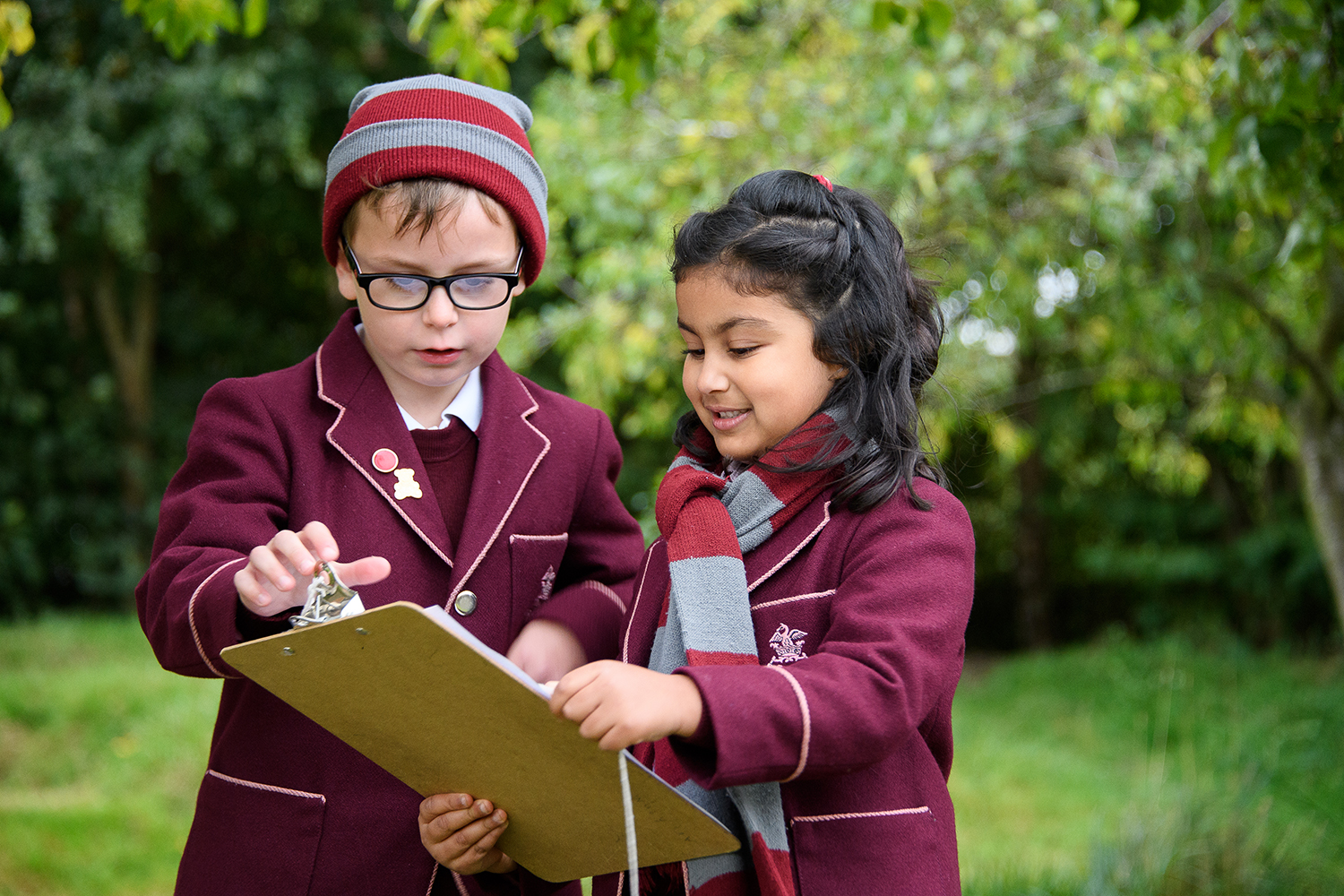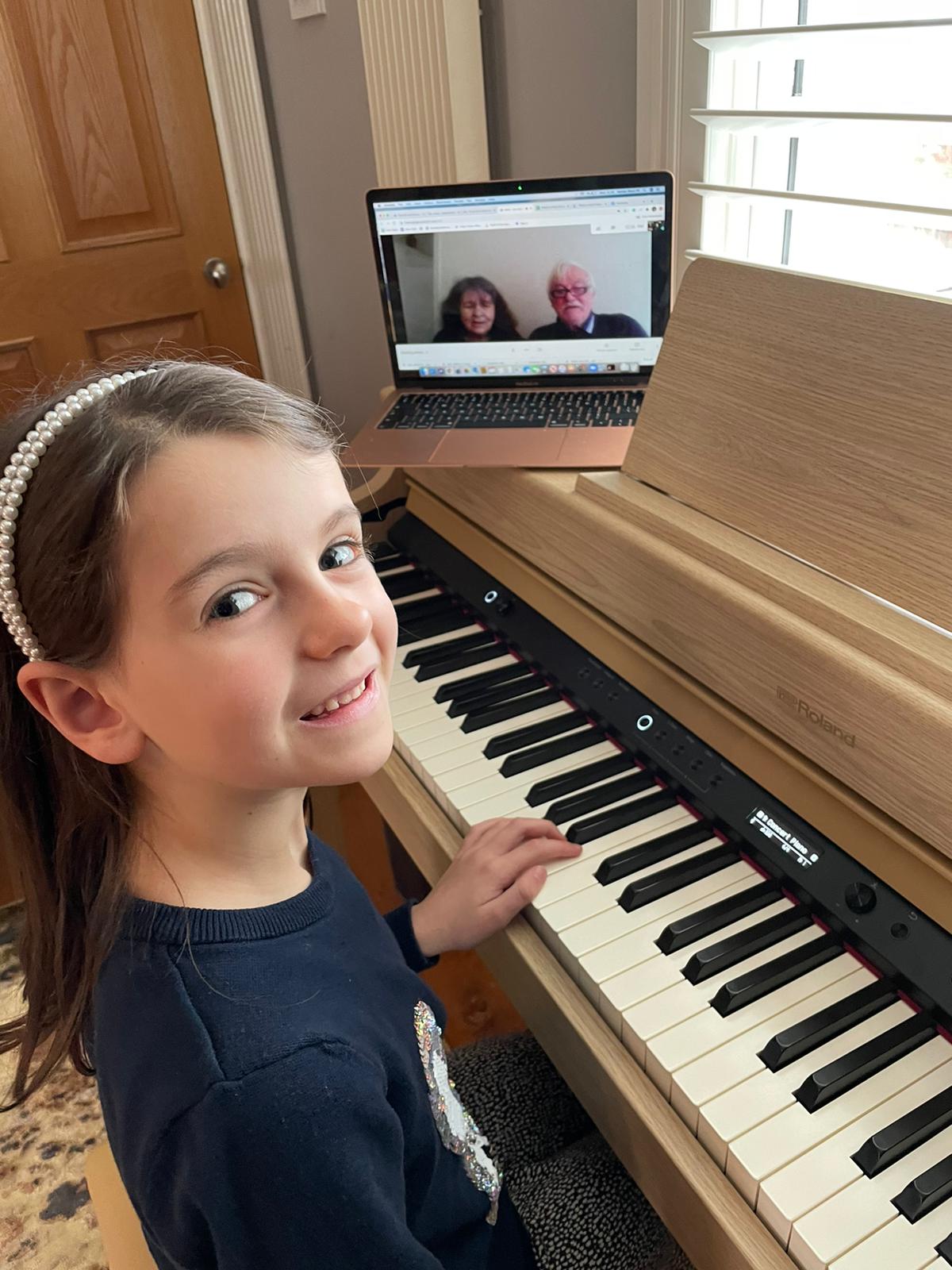Headteacher’s top tips to “offset” screen time

The headteacher of a leading independent school (@oldhallschool) has come up with a list of tips to try and help families “offset” screen time as children are forced to spend increasing hours online.
Martin Stott, headteacher at the Old Hall School, said online tools had proved a massive force for good in the last year but it was still important to ensure children had a healthy relationship with screens.
He said parents should try and include time every day for their children to read from a book, to sit down as a family and talk without it being rushed and to include a physical element to online catch-ups with extended family and friends online.
Old Hall School pupils
“We know that prolonged time on screens can have a detrimental impact on development and mental well being,” said Mr Stott.
“But equally we know through this current crisis they are proving crucial to maintaining some of the essentials in life such as education, work and even talking to our loved ones.
“It’s always been a passion of mine to encourage children and their families to have a healthy relationship with screens and that is even more important to me now they are such vital tools.
“I am grateful for technology and proud of how my team has adapted to include it in daily school routines but it is also important that we as teachers look to encourage ways to offset the time we now need to be on screens.”
But Mr Stott said the school was looking to increase its efforts to balance that screen time out with other interests and personal interaction.
“I couldn’t be more delighted that we saw two full days of ABRSM music exams just before Christmas.
“Our Year Five children also took their English Speaking Board exams virtually and we were pleased to be able to explore this experience with them to showcase how technology can complement traditional skills such as public speaking.
“I understand that parents will also be facing a trying time in terms of juggling childcare and work in the current circumstances.
“But there are ways we can limit the negative impact of having to rely even more on screens.”
Mr Stott said suggestions include adding a performance element when children talk to extended family members online or do something fun like a scavenger hunt around the house for things beginning with a certain letter.
“It can help with spelling but also just avoid that feeling of being locked onto a screen.”
He said families should always set aside time for reading from a book each day and also look for opportunities in the day to talk together away from screens without feeling rushed.
“It has never been more important to try and sit down around a table for at least one meal a day or try and take exercise together on a daily walk so there is time for talking.”
Even if children are watching educational videos or recorded lessons, Mr Stott said it was important to encourage interaction and verbal responses.
“Pause it at regular intervals and ask your child a few questions to make them think about what they are watching and to form opinions on their own.
“We have seen technology be a massive force for good in the last year but as with everything in education it is about opening up opportunity to children while teaching them how to grow and learn in a happy and healthy way.”
Mr Stott’s Top Tips
– Create a points system for children who spend a lot of time gaming. Any time spent reading, practising handwriting or learning tables equate to minutes online.
– Try reading, singing, reciting a poem and playing your instrument to a family friend or relative via FaceTime.
– Watch the news, discuss it and produce a news script to read and record like a TV or radio presenter and then present it to a relative. Perhaps make a Happy News programme!
– If a machine or domestic item breaks and needs replacing, let your children take it to pieces and see how many parts they can get out of it (tools needed).
– Reading, reading, reading is absolutely crucial.
– Create a family word of the day. A new word for each person in the house and see how many times it can be used in conversation.
– Plan a journey/holiday. Give the children a budget and ask them to find deals on accommodation and flights. They could even plan rail journeys, road trips or tours.
– Learn the counties, towns and cities of the UK and make quiz cards.
– Research new board games and get the family to vote on one to buy.
Year 2 pupil Lila playing an instrument to family via FaceTime.














Responses